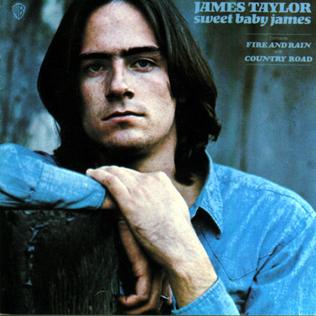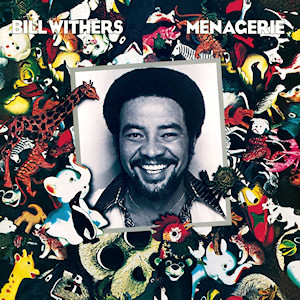How Music Provides Us with Comfort, Growth and Guidance

It’s Friday morning and your alarm rings. You open your eyes and awaken from a deep sleep. As your feet hit the cool ground, you reach for your phone on the nightstand and queue up your Friday playlist. “Get Ready” by The Temptations begins to play on your speakers as you start your morning routine.
I’m sure I’m not alone when I say I wish every morning could begin like that. I’m lucky if I can get out of bed without snoozing my alarm multiple times. Although I’m not much of a morning person, listening to music after waking up always puts a little more pep in my step.
I think we can all agree that this past year was like no other. It was a year of change, heartbreak and loneliness that caused us all to feel an array of emotions. It’s in my darkest times that I find myself turning to music the most in order to understand my emotions and mend my sorrows. That’s the thing about music: it has the ability to change your mood completely. In “This Is Your Brain on Music,” Daniel Levitin wrote, “Hearing a song that you like is a lot like having any other pleasant sensory experience — eating chocolate, fresh-picked raspberries, smelling coffee in the morning, seeing a work of art or the peaceful face of someone you love who is sleeping.” We take pleasure in these sensory experiences because we find comfort in their familiarity and the safety that familiarity brings us. That familiarity and safety are what play a big role in our musical preferences and the music we choose to listen to.
The music we listen to has important consequences, and can impact us before we’re even born. According to Levitin, babies can hear music from inside the womb, and even more fascinating, they can recognize and prefer music they were exposed to in the womb up to a year after birth.
Music also plays a key role in our social lives. We tend to listen to the same music as our friends or family as a way of externalizing our bonds. During our teen years, music becomes a mark of personal and group existence and status. My older brothers used to drive me to school when I was younger, playing Kanye West and Drake on the radio. Although I probably wasn’t supposed to be listening to these artists at a young age, I thought I was so cool for having their songs on my iPod. They’re both still some of my favorite artists today.
Musical preferences are influenced by what we have experienced before, and if the outcome of that experience is positive or negative. Because I have such fond memories of my brothers driving me to school, those artists bring back feel-good emotions. But music can also bring up negative emotions. For example, my roommate in college had “Cigarette Daydreams” by Cage The Elephant as her morning alarm. It’s a great song, but whenever I hear it I’m automatically triggered by memories of waking up for my 8 a.m. classes with a hangover. We remember songs from our younger years because those years were emotionally charged times of self-discovery. This further proves Levitin’s point that “We tend to remember things that have an emotional component because our amygdala and neurotransmitters act in concert to tag the memories as something important.”
Although Levitin points out that most people have formed their music tastes by the age of 18 to 20, he mentions that there doesn’t seem to be a cutoff point for acquiring new tastes in music. Of course, there are certain genres and artists I don’t love, but it’s important to be open to stepping outside of your comfort zone when it comes to listening to new or old music.
For example, I never did understand Swifties’ obsession with Taylor Swift. Radio pop songs have always been a hit or miss with me, and her songs especially seemed to be the ones I disliked the most. But after her new albums were released in 2020, I was able to see her in a different light. In fact, I could relate to the songs that she wrote during such a critical year. She reminded me that even through difficult times, it’s important to turn thoughts of fear and frustration into curiosity and ingenuity. She also made me realize that putting a pause on life can, in a way, make us feel liberated to explore our own thoughts and feelings and see things from a different perspective.
That’s what is so inspiring about music — how it can take us somewhere else and connect us to something much larger than ourselves. When James Taylor sings,
“I've seen fire and I've seen rain,
I've seen sunny days that I thought would never end,
I've seen lonely times when I could not find a friend,
But I always thought that I'd see you again,”

I can’t help but empathize with his mournful lyrics. It’s important to have songs like this to listen to when you’re feeling down or lonely, and helps us relate to others who are feeling similar emotions. Funny enough, James Taylor has a very different reaction to hearing his own song on the radio: he reaches for the dial.
Then there are the songs that make me feel optimistic and thankful for the loved ones in my life. When Bill Withers sings,
“Then I look at you,
And the world's alright with me,
Just one look at you,
And I know it's gonna be,
A lovely day,”

it can turn a bad day into a good one. This song makes me appreciate every feeling and experience I have and not take life for granted.
It’s fascinating how we let ourselves become so vulnerable with artists who are in fact complete strangers. Daniel Levitin wrote, “We allow them to control our emotions and even our politics — to lift us up, to bring us down, to comfort us, to inspire us. We let them into our living rooms and bedrooms when no one else is around. We let them into our ears, directly, through earbuds and headphones, when we’re not communicating with anybody else in the world.”
Music has always been there for me through the good, the bad and the ugly. It’s been a way for me to express myself when I can’t find the right words to explain how I’m feeling. And when you finally find that song that matches your exact emotion, it’s unlike anything else. I hope you have those songs that bring back nostalgia and can transport you to a time that made you feel alive. I hope you have those artists that can help you get through all of the difficult times and be there for you when you need them most.
The power of music is that it can connect us to ourselves, to each other and to what it means to be alive and to be human. If you take anything from this blog post, it’s that music is so important. I will scream that from the rooftops if it means that more people would turn to music during the good times and the bad. And after the year we’ve had, I think we could all use a little more music in our lives.
Comments
Add A Comment